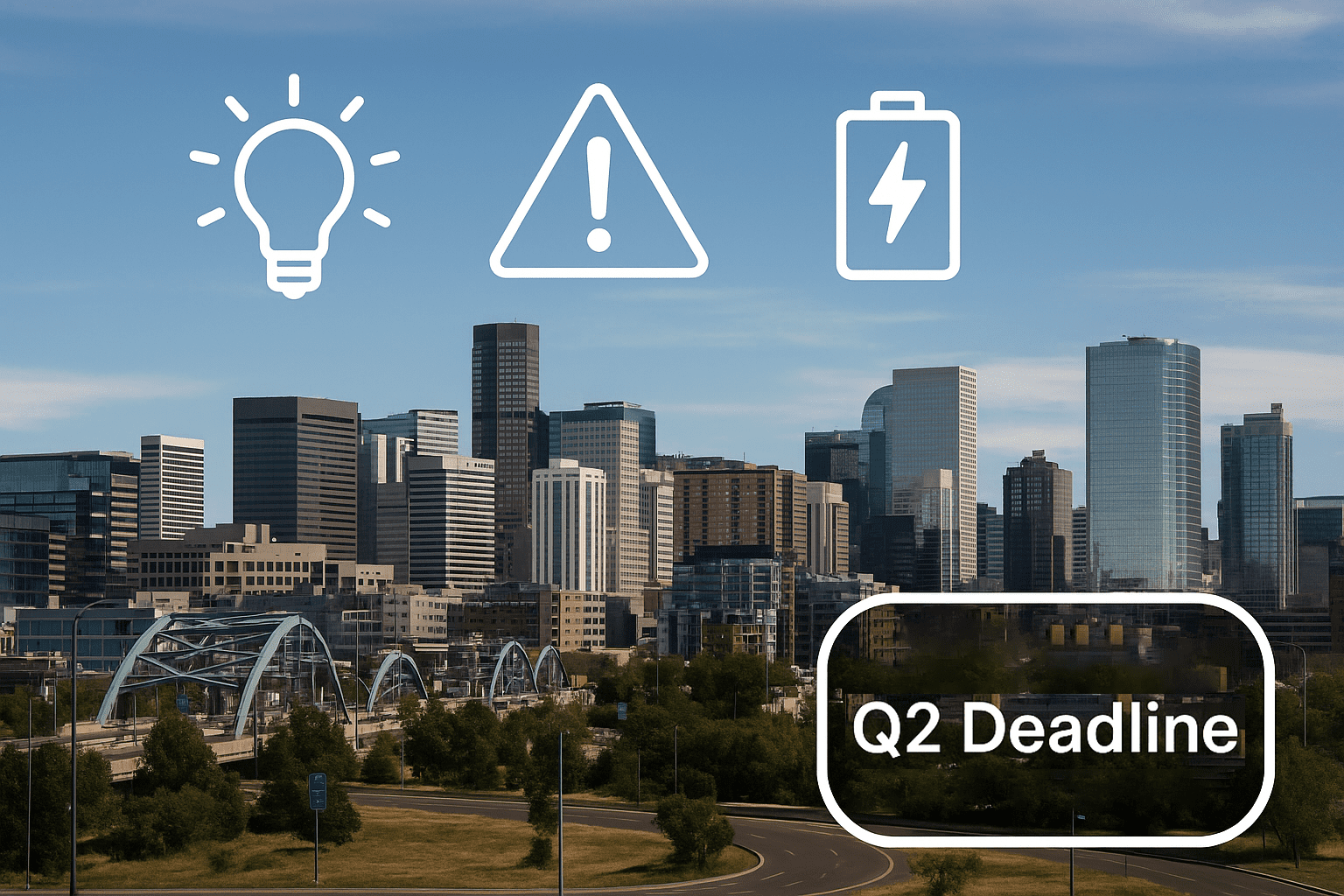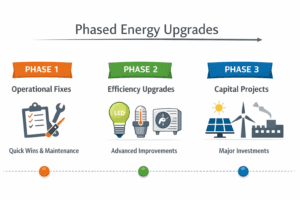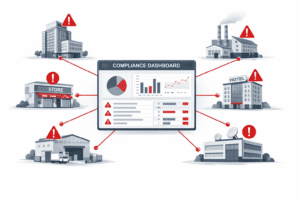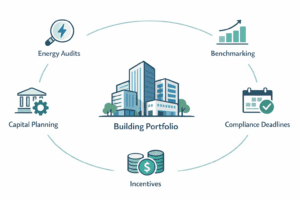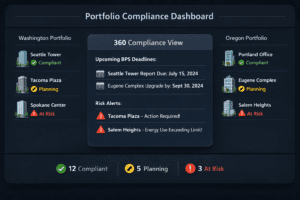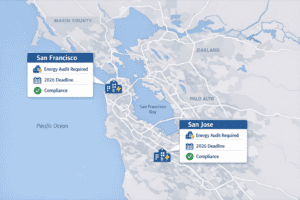Denver 2025 Energy Audit: What You Must Do This Quarter to Avoid Fines
Denver buildings that miss the 2025 energy audit deadline face serious fines, and Q2 is the last safe window to act. Under the Energize Denver program, commercial property owners must meet strict building performance standards by submitting an approved ASHRAE Level 1 audit. Failing to do so can result in penalties of up to $0.30 per square foot—a costly hit, especially for large buildings.
This guide explains everything you need to know to stay compliant. We’ll break down what the audit includes, why Q2 is a critical checkpoint, and how to avoid the most common submission mistakes. Whether you’re starting from scratch or already halfway through the process, now is the time to act and avoid year-end panic.
Why Q2 Is Critical for Compliance
Think of Q2 as your action window. By this point in the year, your building’s energy data should already be gathered, and your audit should be scheduled or in progress. Auditors are booking fast, and by Q3, availability becomes limited. Delays now may push your audit past the deadline, triggering non-compliance and fines.
Q2 also gives you time to gather documentation, fix errors, and coordinate your team. Submitting early allows room for review and corrections. If you wait until fall, you risk submitting a rushed or incomplete audit.
The city of Denver provides resources to help. You can access the Touchstone IQ energy dashboard, virtual ASHRAE tools, and schedule 1-on-1 support through the Energize Denver Help Desk. Using these now can save time and ensure accuracy later.
What’s in a Denver ASHRAE Level 1 Audit?

The ASHRAE Level 1 audit required under Energize Denver is a high-level inspection of your building’s energy use. It’s designed to identify inefficiencies and suggest practical improvements without requiring in-depth modeling.
Your auditor will walk through the building to inspect systems like HVAC, lighting, insulation, and controls. They’ll analyze 12 months of energy bills and look for usage spikes or seasonal anomalies. Based on these findings, they’ll recommend simple, low-cost upgrades—such as switching to LED lighting, improving scheduling for HVAC systems, or tightening building controls.
This audit isn’t just about passing a test. It’s a chance to understand how your building uses energy and where you can reduce waste. Preparing your team and systems ahead of time helps ensure the audit runs smoothly and produces useful results.
The 3-Part Plan for a Successful Q2 Audit
1. Get Your Documentation in Order
Start by gathering 12 months of utility bills for all energy types—electricity, gas, steam, etc. Make sure they are complete, clear, and match your building profile. You’ll also need building size, system descriptions, and occupancy data.
Review Denver’s official Energize Denver checklist to confirm what else is required. This step helps catch missing documents before they delay your submission.
2. Work With a Certified Audit Provider

Only approved professionals can submit audits under Denver’s rules. Choose someone familiar with ASHRAE Level 1 and the city’s submission system. Ask if they’ve worked on similar building types. A qualified provider will also ensure your report uses the right templates and avoids formatting errors.
If your building is an Equity Priority Building, you may qualify for free audit services, contractor bid support, and energy retrofit planning. Don’t miss out—ask your provider about this option.
3. Review and Submit Early
Once your audit is complete, double-check the report. Ensure units are consistent (e.g., kWh, MMBtu), the performance metrics are accurate, and the recommendations are clearly documented. Submit through the city’s portal using approved file formats, and always keep a copy of the confirmation.
Submitting early in Q2 allows time for edits or follow-up questions. Submitting late leaves no room for error.
Avoid These Common Mistakes
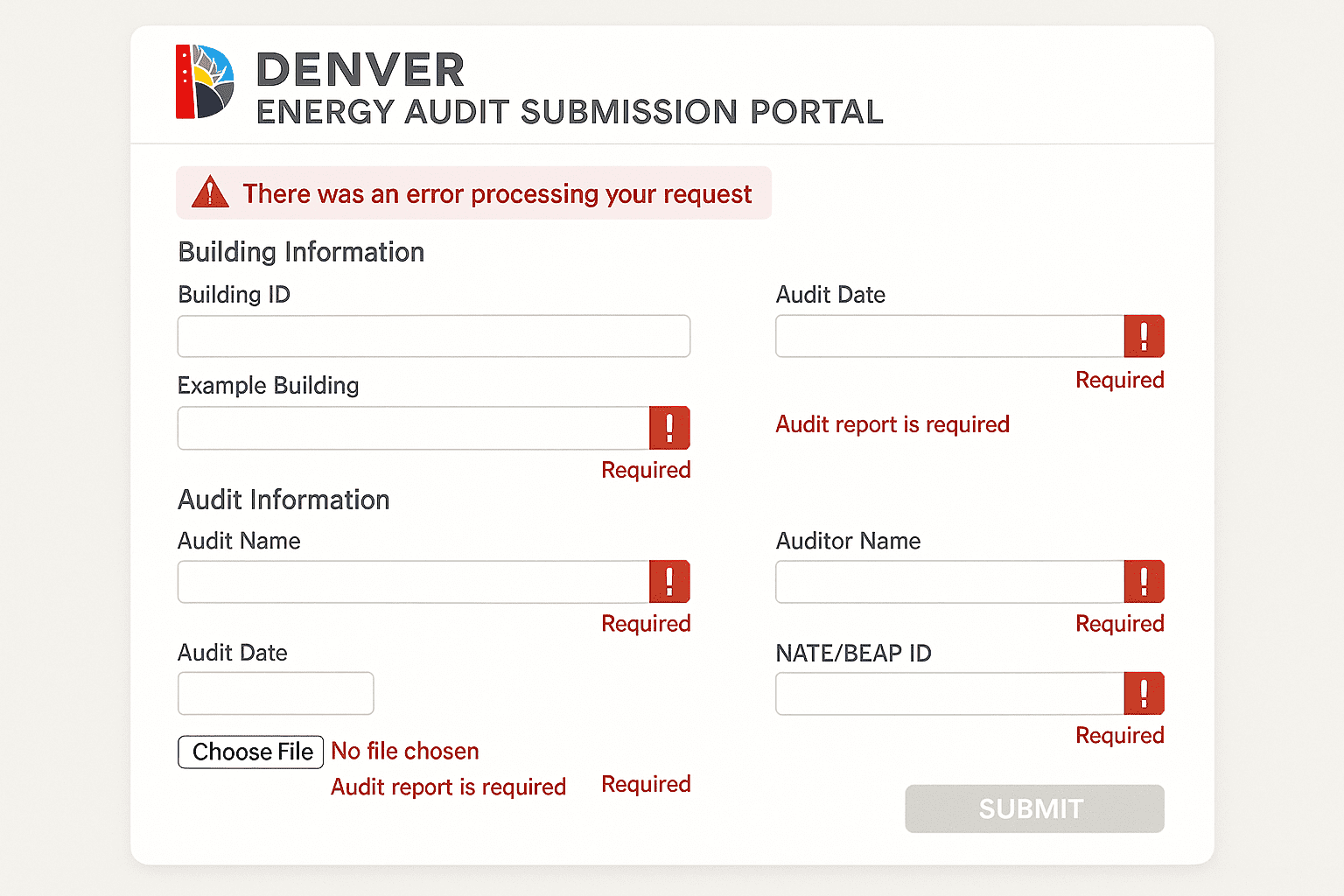
Even well-prepared buildings can stumble during the audit process. Here are the most common errors that lead to failed submissions or fines:
- Submitting outdated or partial utility data
- Choosing non-approved auditors unfamiliar with Energize Denver
- Misreporting performance metrics or comparing to incorrect benchmarks
- Ignoring the auditor’s recommendations or failing to include a response plan
- Uploading reports in the wrong format or without confirmation
Each of these can be avoided with proper planning and a strong audit partner.
Why Acting Now Saves You Money
Beyond avoiding fines, acting now gives you access to valuable incentives. Denver is offering $20 million in new rebates for 2025, on top of the $28 million already available for electrification projects. Many of these programs require a completed energy audit to qualify.
Waiting too long can disqualify you from these opportunities, even if you eventually complete your audit. Submitting in Q2 ensures you meet all eligibility requirements.
Your Energy Audit Q2 Action Plan
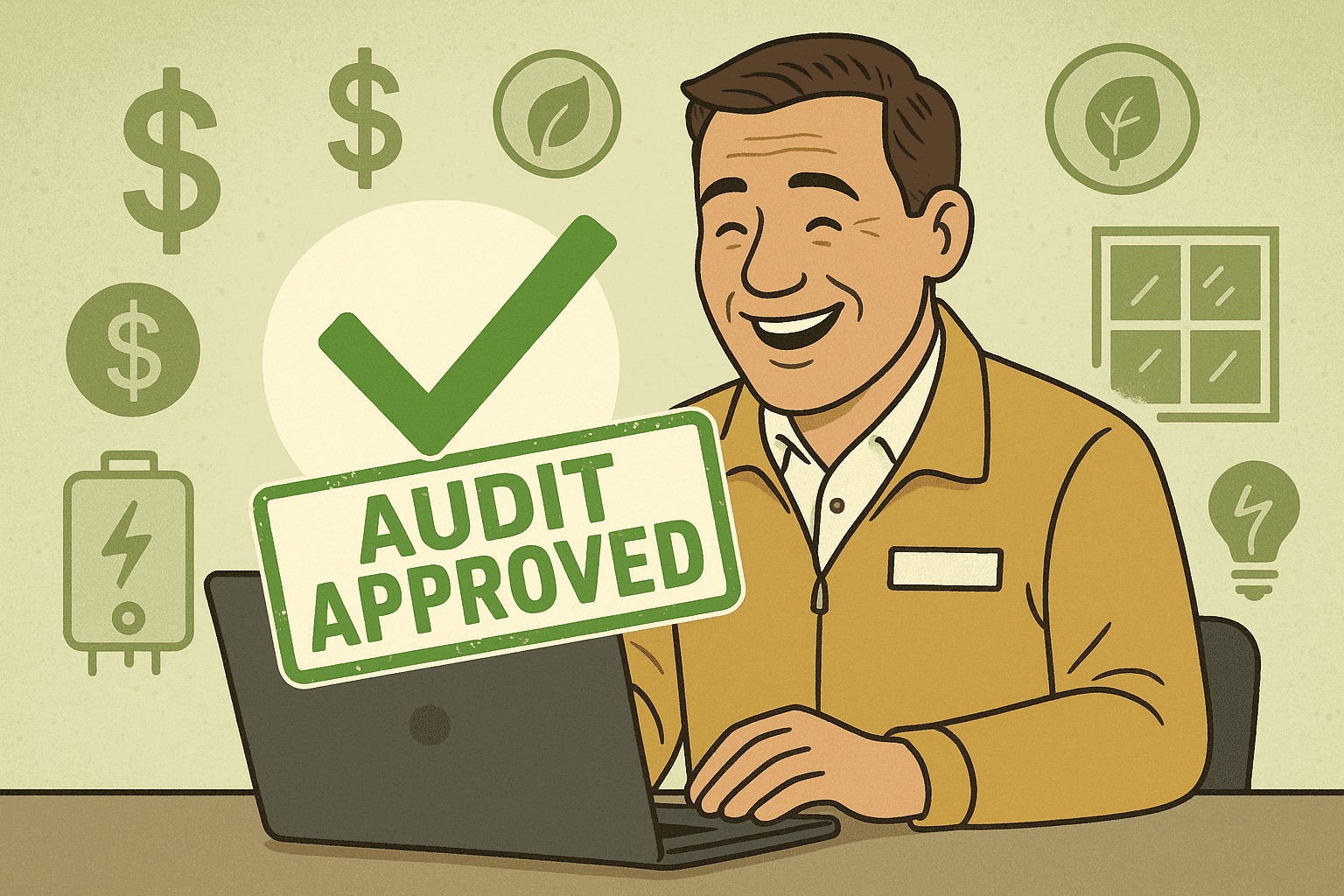
✅ Download the Energize Denver checklist to track your progress.
✅ Confirm your building’s requirements using the city’s Building Performance Map.
✅ Hire a certified auditor with ASHRAE experience and knowledge of Denver rules.
✅ Collect utility data for the past 12 months in digital format.
✅ Walk your building before the audit to identify underperforming systems.
✅ Loop in your team, maintenance and facilities staff can provide helpful insights.
✅ Explore incentives and rebates, submit early to secure funding opportunities.
These steps will keep your audit on track and protect your property from last-minute stress or non-compliance.
The Time to Act Is Now
Q2 is your most strategic window to complete Denver’s energy audit requirements and stay ahead of the 2025 deadline. By booking your audit now, preparing your data, and working with the right team, you can avoid costly penalties and secure funding for building upgrades.
Don’t wait for Q4 chaos. Prepare now, submit early, and ensure your building remains compliant under Energize Denver.
VertPro.com offers fast, accurate support for building owners navigating energy audits. From instant pricing tools to certified audit professionals, VertPro® helps simplify every step of the process.
Use the Energy Audit Instant Pricing Tool today and take control of your compliance.


